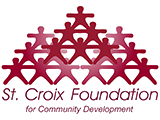In 2010, the state of Delaware won first place in the nation’s Race to the Top grant program and, in turn, was awarded over $119 million dollars in federal grant money for their public education reform efforts. In reality, Delaware’s success was spearheaded by a nonprofit organization called the Rodel Foundation. With a mission of improving student achievement across the state and ultimately for Delaware to rank number 1 in the nation, over the course of several years, Rodel strived to galvanize both education and business communities around the need to transform their entire education system. To build their strategic plan, they convened a 24 member steering committee that was carefully selected and comprised “senior leaders from each of the critical [education] sectors” – a noble yet naïve endeavor in the world of public education.
Through every stage of their consensus building efforts, tensions and challenges arose, but as Marty Linksky, Rodel’s lead steering committee facilitator pointed out, “In order to reach a much higher goal for the children of Delaware, each participant would have to agree to disappoint some portion of his or her own constituency… as participants committed to reaching an agreement on 85 percent of the resulting agenda, realizing each party might resist about 15 percent.”
In 2006, Rodel publicly released their report entitled Vision 2015. And while today it is a comprehensive plan containing 45 specific recommendations for education reform, it took almost 3 years after its release for it to be endorsed by all senior members of every stakeholder group in the state of Delaware. After years of research and relationship building, Vision 2015 was fully and finally adopted by stakeholders in 2009 with the following objectives and recommendations:
- Set high expectations for all students: make sure standards match those of the highest performing nations and; require state funding for 140 additional school hours per year.
- Invest in early childhood education: mandate annual license renewals for all early childcare and education providers; build a data system to enable pre kindergarten and K-12 programs to share information seamlessly and track the educational progress of students.
- Develop and support high quality teachers: treat teachers as professionals with increased pay and a new career path; strengthen higher education’s teacher preparation and professional development programs; establish professional development centers to allow teachers and principals to share best practices and; create incentives and supports for schools to help new teachers succeed.
- Empower principals: give skilled principals broader control of decision making related to people, resources, and time; create a statewide leadership academy to serve as a one- stop center for world class principal recruitment, retention, induction, and professional development.
- Encourage innovation and require accountability: create a statewide Office of Innovation to disseminate best practices and new programs to schools and communities; create a pool of funds to strengthen school-community and school-business partnerships; define what it means to be a world-class school and; identify and provide funding to start and replicate best practice schools that work.
- Establish a simple and equitable funding system: create a weighted student funding formula to provide different funding for students with different needs; distribute these funds directly to districts and schools, giving principals flexibility in how these funds are spent, along with accountability for results; engage in a careful analysis of how current education dollars could be spent more effectively or allocated differently.
While implementation of the plan was largely contingent upon funding by Race to the Top and building political will, today, Vision 2015 has become a national model for comprehensive, whole system reforms, and we believe that it is a blueprint that the Virgin Islands can use to develop our own Vision for the future.
Overall, the St. Croix Foundation found the story of Rodel compelling. It is a model of education reform that we believe has legitimacy because in order to change educational outcomes and to build a foundation for economic prosperity, communities like ours must first build consensus. But, to build consensus, our constituents, and more specifically our policymakers, must gain a deep understanding of our system. And then, we need to finally set aside the bickering, bipartisanship, and years of pointing of fingers so that we can collectively strive for one common goal: Putting our children first!
It’s time for all stakeholders to put down their swords, raise the white flags, and surrender entrenched positions so we can get serious about educating our children. As we near what many will agree is one of the most important elections in recent history here in the Virgin Islands, we challenge our political candidates and policymakers to make a commitment to creating a real Vision for our schools and to leading this Territory toward social progress and prosperity. It’s time!
Sources & Suggested Readings
Persistence and Agility: The Rodel Foundation of Delaware’s Efforts to Transform Delaware’s Education System: https://www.edfunders.org/sites/default/files/case_8_rodel.pdf
Vision 2015: Imagine: https://www.vision2015delaware.org/wp-content/uploads/2011/06/Vision-Plan.pdf
